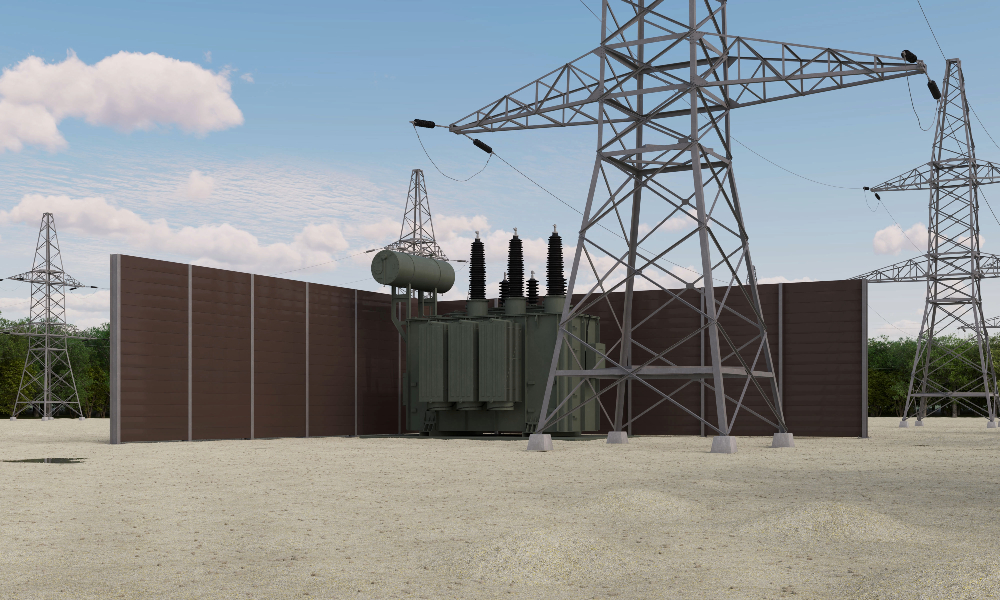If you’ve ever managed a construction project, you’ll know that noise is part of the job. From drilling and piling to the constant hum of heavy machinery, construction sites are inherently noisy. While most people understand that some sound is unavoidable, excessive noise can create problems — from frustrated neighbours to delays and extra costs.
Fortunately, there is a straightforward solution that protects both your project and your reputation: a sound barrier. Using the right noise management solutions can reduce complaints, improve working conditions, and even protect your bottom line.
Why Noise Matters
Before you think about solutions, it’s worth understanding why noise is such a big deal.
Noise isn’t just a minor nuisance. It can trigger complaints from residents, attract regulatory scrutiny, and even force stop-work orders. Projects in urban areas are particularly sensitive because residents and businesses are closer to the construction site.
Each complaint has the potential to cause delays, and delays are expensive. Labour, equipment rental, and rescheduling subcontractors all add costs. That’s why managing noise effectively is a vital part of project planning. A sound barrier is an essential tool in keeping noise contained and protecting your project from unnecessary interruptions.
What Is a Sound Barrier?
You might be wondering exactly what a sound barrier is and how it works.
At its simplest, a sound barrier is a structure designed to absorb or block noise. On construction sites, these barriers are usually modular and temporary. They can be installed quickly and moved as the project evolves. Most are made from dense, durable, and weather-resistant materials, so they can withstand heavy site use.
Some sound barriers even double as site hoardings, offering privacy and security in addition to noise reduction.
Minimising Complaints and Legal Risks
Complaints about noise can escalate quickly if they are ignored.
Residents, local businesses, and councils all have a say when construction noise becomes a problem. Without a plan, a simple complaint can grow into fines, stop-work orders, or even restrictions on working hours. Installing a sound barrier early in the project shows that you are taking noise seriously and taking steps to mitigate it.
This proactive approach reduces the likelihood of legal issues, protects your schedule, and enhances your reputation. Stakeholders notice when a project is managed thoughtfully, and that goodwill can be invaluable.
Maintaining Project Schedules
No one likes unexpected interruptions, and in construction, they are costly.
Noise complaints can force work to stop, delaying critical stages of a project. Using a sound barrier helps maintain a consistent work schedule. Teams can complete tasks without interruption, subcontractors stay on track, and materials are used on time.
Controlling noise issues helps protect the project timeline. A less noisy site allows work to progress without the usual interruptions that can knock your schedule off balance. In the long run, this keeps costs under control and reduces stress for everyone involved.
Supporting Worker Productivity and Safety
Constant loud noise can make communication difficult, lead to mistakes, and contribute to fatigue. Over time, this can reduce efficiency and increase the risk of accidents. A sound barrier helps create a calmer, more controlled environment where workers can focus on their tasks.
Better communication and reduced distractions improve overall productivity. Teams can hear instructions clearly, respond to alarms promptly, and avoid errors caused by mishearing directions. In this way, noise management isn’t just about the neighbours; it’s about supporting a safer, more productive workplace.
Building Good Relationships with the Community
Construction projects are often in close proximity to homes, offices, or schools. Residents are more patient when they see that noise is being managed responsibly.
Installing a sound barrier is a clear, visible sign of professionalism. It shows that your team cares about the impact of the project on the surrounding community. This proactive approach helps build trust, reduce complaints, and ensure smoother relationships throughout the life of the project.
Communities appreciate when developers consider the noise impact, and a well-placed sound barrier can go a long way in maintaining goodwill.
Long-Term Benefits
Sound barriers aren’t just a temporary fix — they are a long-term asset.
Many construction companies reuse them across projects, making them a cost-effective solution. Beyond the immediate benefits, they also contribute to a professional image. Clients, councils, and communities all notice when a contractor manages noise well. Over time, this builds trust and makes it easier to secure approvals and future projects.
Investing in sound barriers signals that your company prioritises professionalism, safety, and community responsibility. This reputation is as valuable as any material or piece of equipment on the site.
Practical Tips for Using Sound Barriers
To get the most out of a sound barrier, follow these simple steps:
- Plan early – Include noise management in your project planning.
- Choose quality materials – Durable, modular panels last longer and can be reused.
- Monitor effectiveness – Check noise levels regularly and adjust the barriers if needed.
- Communicate with the community – Let residents and stakeholders know about the measures in place and the expected schedule of noisy activities.
These steps, combined with a sound barrier, create a professional and considerate approach to construction.
Conclusion
Noise is unavoidable in construction, but it doesn’t have to cause delays, complaints, or extra costs. A sound barrier is a simple, practical solution that benefits everyone involved.
By reducing complaints, protecting schedules, supporting worker safety, and building trust with the community, sound barriers improve project outcomes and enhance professional reputation.
Noise-controlled sites lead to happier residents, safer and more productive workers, and ultimately, better returns. Managing noise effectively is not just about sound — it is about running a smoother, more successful construction project.
